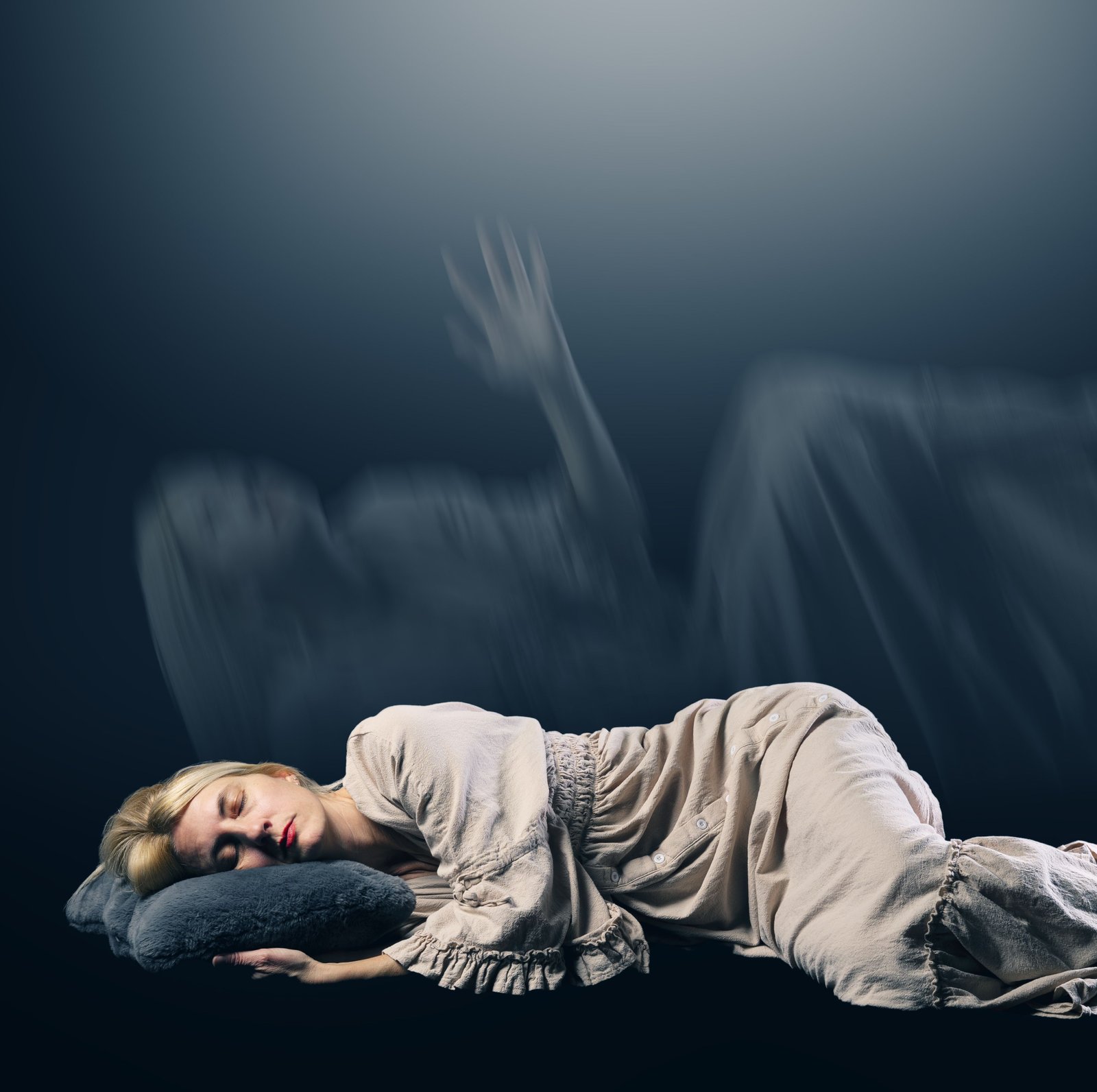Lucid Dreaming Isn’t Sleep or Wakefulness—It’s a New State of Consciousness, Scientists Find
Lucid Dreaming Isn’t Sleep or Wakefulness It’s a New State of Consciousness
And it gets even trippier.

sdominick//Getty Images
- After analyzing many previous studies on lucid dreaming, researchers have defined it as a state that differs significantly from both REM sleep and wakefulness.
- The awareness of dreaming during a lucid dream is now thought to come from shifts in brain wave activity undergone by several parts of the brain, including the right central lobe, parietal lobe and precuneus.
- Lucid dreams were also found to have effects similar to psychedelics like LSD.
Have you ever had a dream in which you realized you were dreaming?
When you become conscious of the fact that you are dreaming, you can take advantage of that knowledge and manipulate the dream. If you want to do something that is physically impossible in the real world, such as flying, you can leap into the air and take flight. Someone who realizes they are trapped in a nightmare can convince themselves to wake up.
The state known as lucid dreaming is an unquestionably surreal one, and it just got even more so. A team of researchers—led by Çağatay Demirel from the Donders Center for Cognitive Neuroimaging at Radboud University Medical Center, the Netherlands—has discovered that lucid dreaming has now been found to be a state of consciousness separate from both wakefulness and REM sleep (the state usually associated with dreams), and is in fact associated with its own unique type of brain activity. They published a study on their findings in the Journal of Neuroscience.
“This research opens the door to a deeper understanding of lucid dreaming as an intricate state of consciousness by pointing to the possibility that conscious experience can arise from within sleep itself,” Demirel said in a press release.
To identify what sets lucid dreaming apart from the rest of sleep, he and his team pulled previous studies—in which brain activity was measured with EEG sensors—together into what is now the most extensive dataset in this field of sleep research. The researchers then compared brain activity patterns for wakefulness, REM sleep, and lucid dreaming to find that that the eerie self-awareness experienced in lucid dreams has a connection to the electrical rhythms in neurons known as brain waves.
Perception and memory processing in the lucid dreaming state were found to be different from non-lucid REM sleep. The consciousness of existing in a dream was associated with with beta waves in the right central lobe (which controls spatial awareness and nonverbal memory) and parietal lobe (which controls the sense of touch and spatial awareness). Beta waves are a type of high-frequency electromagnetic activity in the brain involved in conscious thought processes like solving problems or making decisions. Our consciousness is dominated by beta waves when we are awake.
This might explain why there is so much cognitive control in lucid dreams. Dreamers deep in REM sleep have no sense of control over factors like thoughts, feelings, and behaviors, but those in lucid dreaming states do.
Demirel also linked gamma waves with lucid dreaming. These are the fastest brain waves, which become visible on an EEG at times when the brain is especially alert and focusing on something. When lucid dreaming begins, gamma waves increase in the right precuneus, which is involved in self-referential thinking—thoughts about ourselves and our lives. When we are awake, we often drift into this type of thinking when our minds wander.
Maybe the most mind-bending thing about lucid dreams is that they are, according to the study, similar in the brain to the effects of psychedelic drugs such as LSD and ayahuasca. These types of psychedelic experiences are also associated with the precuneus, whose activity is modified when waking imagery is seen despite having closed eyes (something usually only experienced with psychedelics).
Interestingly, however, lucid dreams may even go a few experiential steps past psychedelics. “While psychedelics often lead to a dissolution of ego and decreased self-referential processing […] lucid dreams may actually harness elements of self-awareness and control,” Demirel and his team said in the study.
So if you’re capable of lucid dreaming, you’re in for an awesome trip.
Source: https://www.popularmechanics.com

Elizabeth Rayne is a creature who writes. Her work has appeared in Popular Mechanics, Ars Technica, SYFY WIRE, Space.com, Live Science, Den of Geek, Forbidden Futures and Collective Tales. She lurks right outside New York City with her parrot, Lestat. When not writing, she can be found drawing, playing the piano or shapeshifting.
End of Lucid Dreaming
https://www.hypnosisdownloads.com/sleep-problems/lucid-dream?4238

Comments
Lucid Dreaming Isn’t Sleep or Wakefulness—It’s a New State of Consciousness, Scientists Find — No Comments
HTML tags allowed in your comment: <a href="" title=""> <abbr title=""> <acronym title=""> <b> <blockquote cite=""> <cite> <code> <del datetime=""> <em> <i> <q cite=""> <s> <strike> <strong>